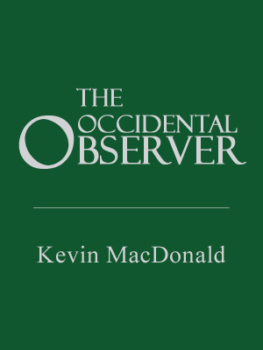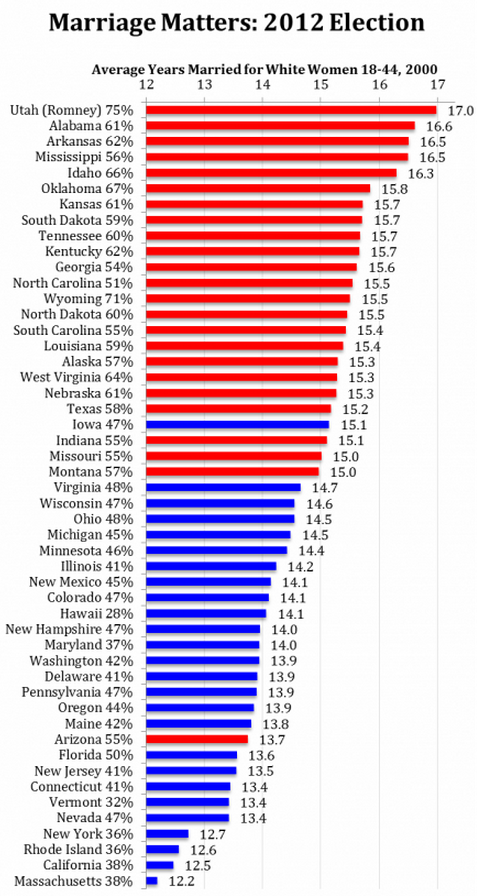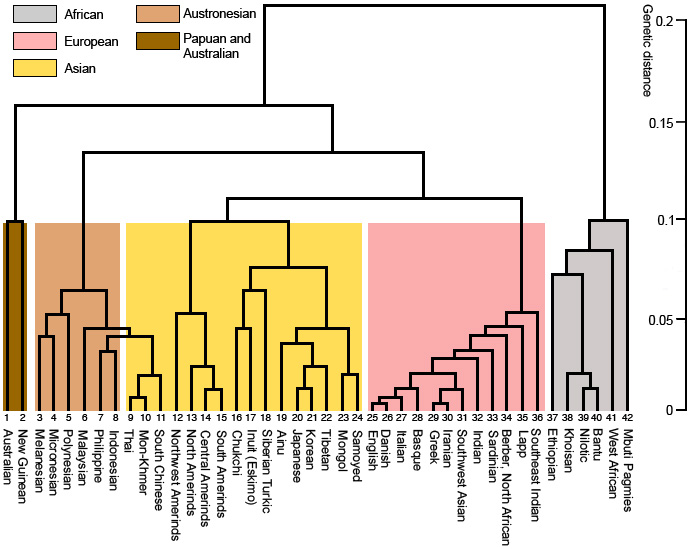
“A teoria de [Kevin] MacDonald representa uma nova fase do longo processo de destruição da razão.”
(SLAVOJ ZIZEK)
“Zizek é, na melhor das hipóteses, um charlatão pernóstico.”
(THOMAS MOLLER-NIELSEN)
Este é um ensaio sobre o antissemitismo, mas como trata também de Slavoj Zizek, nós teremos de começar abordando a questão das relações extraconjugais. Bem no começo da minha carreira acadêmica, fui chamado para participar de um seminário interdisciplinar, no qual estudantes de pós-doutorado iriam falar rapidamente de suas pesquisas. O esperado era que eu, como alguém que havia recentemente concluído o pós-doutorado, fosse arguir os estudantes de forma dura, mas sempre no sentido de favorecê-los, para não prejudicar o saudável clima das relações pessoais harmoniosas no meu departamento. Deram para mim o programa das apresentações, e na mesma hora já me senti aborrecido com o besteirol feminista e o nhenhenhém semimarxista de contempladores do próprio umbigo, não havendo nada ali relacionado com os campos de pesquisa de meu interesse. Entretanto, eu estava ansioso para cumprir acertadamente minha tarefa e acabei me enquadrando no esquema por dever de ofício. Eu nunca vou me esquecer da primeira apresentação, porque foi muito surreal, o expositor era um afro-americano efeminado, ele recitou um poema intitulado “Pele negra”, falando sobre… bem, o leitor já entendeu o espírito da coisa. Mas o mais memorável evento do dia viria mais tarde, quando uma jovem apresentou trabalho sobre como a questão do gênero era tratada na mídia, ou alguma coisa assim. Eu não gostei da atitude dela, fiquei irritado e, na hora das perguntas, dei uma prensada nela. Uma figura veterana do departamento notou a minha reação e, depois de terminado o seminário, quis voltar à vaca fria. Era um historiador inglês de modos delicados, sobre quem havia muita fofoca. Ele me chamou à sala dele para uma discussão sobre política sexual e de gênero.
Eu me tornei politicamente consciente desde a minha adolescência. Estudei profundamente o marxismo desde quando eu tinha 17 anos e conhecia muito bem esse culto. Apesar disso tudo, eu não estava preparado para a aventura que me esperava na sala do inglês. As paredes eram decoradas com bandeirinhas vermelhas e quadros como que de santos com imagens de Lênin e Trotsky. Então eu pensei que ali se encontrava um comunista de carteirinha. Eu estava em presença de um devotado marxista, de alguém que, diante de mim, representava solitariamente o exemplo concreto da longa marcha para a conquista das instituições. Ele preparou o chá, e nós nos sentamos. Ele começou a discorrer, eu fiquei escutando. No preâmbulo de seu monólogo, meu anfitrião começou externando sua perspectiva pessoal, explicando que, mesmo nas coisas pertinentes ao seu mundo particular, ele se empenhava por viver de acordo com as suas “convicções socialistas”. Antes de se casar, ele disse, ele e sua noiva acordaram entre si que não prestariam os tradicionais juramentos, que não seriam possessivos, que nenhum deles prometeria ser exclusivamente do outro. Eles poderiam “esperar” exclusividade, mas não a poderiam exigir. Eles acreditavam em “liberdade”, ele disse, acrescentando que o progressismo social e a moderna política sexual e de gênero se resumiam a isso. Ele deu a entender que não havia nenhuma razão para ninguém rir disso ou se sentir incomodado com isso.
Mas havia, sim. Eu tinha ouvido um zunzunzum no câmpus de que a mulher desse advogado do “amor livre” estivera cumprindo curto prazo de docência na Noruega e que recentemente tinha decidido ficar por lá mesmo com um namorado norueguês com quem ela tinha tido um caso durante um tempinho. Na Noruega ela vivia com as duas crianças de seu marido “oficial” e fazia de tudo para não deixar que o chifrudo bonacheirão inglês e amante de Lênin pudesse ver os filhos. A casa da família acabou sendo-lhe tirada pela “ex”, e meu colega marxista passou a morar numa pensão. Trágico? Bem possivelmente. Risível? Com certeza. Tudo isso veio à minha lembrança enquanto o corno manso leninista sentado diante de mim falava dos frios votos de seu casamento, a xícara de chá na mão, olhos marejados de… lágrimas? Efeito do vapor do chá, ele disse, enquanto enxugava-os, rapidamente desviando seu olhar para a janela. Eu fiquei na minha, só olhando para a cara dele. O tempo passava, e aos poucos ele foi se aquietando, até silenciar. Então, agradeci protocolarmente e empreendi fuga dali, respirando fundo quando saí do prédio. Nunca mais na minha vida pus os pés naquele escritório.
O que isso tudo tem a ver com o antissemitismo? Da perspectiva da grande vedete intelectual marxista Slavoj Zizek, tem tudo a ver, porquanto, como iremos mostrar, a infidelidade e o antissemitismo estão irrefutavelmente ligados. Eu digo “irrefutavelmente’ com muita segurança, porque os argumentos dele são irrefutáveis — e são irrefutáveis porque não obedecem à lógica.
Vamos lá! Primeiramente, quem é Slavoj Zizek? Ostensivamente, ele é um respeitado filósofo da Eslovênia e professor em Nova Iorque e Londres, que se ocupa de campos variados do saber, como ciência política, cultura, psicanálise, crítica de cinema, marxismo, teologia e as filosofias de Hegel e Jacques Lacan. Ele mesmo é o tema mais batido do seu The International Journal of Žižek Studies e já foi considerado “o Elvis [Presley] da teoria cultural” e “o mais perigoso filósofo do Ocidente”. Zizek goza de grande popularidade entre não acadêmicos e jovens esquerdistas, devido principalmente à técnica de comunicação que lhe é peculiar, às referências que faz à cultura de massa em suas palestras, às suas “piadas obscenas” e aos títulos de suas conferências e documentários, sempre contendo a expressão “Guia dos perversos…”. Em abril de 2019, Zizek e Jordan Peterson lotaram o Centro Cultural da Sony em Toronto para debater o tema “Felicidade: capitalismo versus marxismo”, que alguns chamaram de “o debate do século”, embora muitos dissessem depois que fora decepcionante. O importante aqui é levar em conta a grande audiência de Zizek e o fato de geralmente ser tido como pensador sério. Isto significa que suas manifestações são influentes, razão por que interessa examinar o que Zizek tem a dizer dos judeus e do antissemitismo.
As ideias de Zizek sobre temas específicos podem ser difíceis de determinar, porque ele esparrama suas perspectivas por diferentes livros, numerosos artigos e muitas palestras e entrevistas. Fica claro, entretanto, ao se comparar o número de visualizações de suas postagens no YouTube com a frequência à ciberteca dele chamada The Philosophical Salon, a qual serve de vitrina para seus escritos tópicos, que ele se destaca mais como animador audiovisual do que como um escritor sério. O antissemitismo não é assunto sobre que Zizek tenha se debruçado aturada e interessadamente, ainda assim, curiosamente, ele está sempre dando palpites sobre essa questão em algumas de suas palestras dedicadas ao tema. A partir daqui estudaremos as teorias de Zizek sobre o antissemitismo.
I. A patologia da paranoia invejosa
Como legatário da psicanálise de Freud e Jacques Lacan, Zizek recorre fortemente a teorias psicanalíticas do antissemitismo em suas publicações escritas e audiovisuais. Neste ponto voltamos ao assunto das relações extraconjugais, porque num ensaio de fevereiro de 2016 sobre a crise da imigração, publicado no New Statesman, Zizek dizia o seguinte:
Jacques Lacan alegava que, mesmo se a denúncia de um marido ciumento que acusasse a mulher de dormir com outros homens fosse verdadeira, o ciúme dele seria patológico. Por quê? Porque a verdadeira questão não está em saber se o ciúme do marido tem fundamento na traição real da mulher, antes importa saber a razão pela qual o marido precisa de seu ciúme para manter a própria identidade. Analogamente, pode-se dizer que mesmo se as falsas acusações dos nazistas que incriminavam os judeus de explorar os alemães e seduzir suas mulheres fossem verdadeiras, seu antissemitismo ainda seria (e era) patológico, porquanto recalcava a verdadeira razão pela qual os nazistas precisavam do antissemitismo, qual seja, sustentar sua posição ideológica. E não é isso, exatamente, o que ocorre hoje em relação ao medo crescente dos refugiados e imigrantes? Estendendo o raciocínio a um caso extremo, podemos concluir que, mesmo se os nossos preconceitos em relação a eles fossem verdadeiros, mesmo se eles fossem fundamentalistas, terroristas, assaltantes, estupradores, ainda assim as advertências paranoicas de uma ameaça imigratória seriam patologia ideológica. Essa nossa atitude enquanto europeus fala mais de nós do que dos imigrantes.
Há muito nisso daí para ser periciado, mas uma rápida leitura já causa espanto, porque o texto é um desastre da lógica e porque muitos consideram o seu autor um sério e celebrado filósofo da cultura contemporânea. O primeiro problema é, evidentemente, a citação do ridículo Lacan como se fosse uma autoridade, como se o que ele diz valesse alguma coisa. Se um homem tem provas suficientes para acreditar que sua mulher esteja sendo infiel, então seria difícil taxar o marido de ciumento ou, mais ainda, de patológico, porque ele estaria apenas reagindo para defender seus interesses (sexual, reprodutivo, financeiro, emocional, até religioso e profissional — o que não teria nada de surpreendente para um evolucionista). Também não procede dizer que ele precise do ciúme a fim de manter sua identidade. Na verdade, o que iria acabar com a identidade dele seria a traição mesma, pois o aspecto emocional e todos os outros constituintes de sua vida de homem e de marido estariam solapados no contexto da infidelidade. Kevin MacDonald observou que o ativismo intelectual judeu, especialmente aquele comprometido com a psicanálise, costuma se valer de interesses pessoais para escolher argumentos, os quais são formulados em linguagem universal. Jacques Lacan não era judeu, mas suas teorias sobre o ciúme e a infidelidade, incluindo sua famosa afirmação de que “Não existe essa coisa de relacionamento sexual”, sempre foram de um subjetivismo interessado, não há dúvida quanto a isso. Catherine Millot, uma de suas pacientes, rememorava em autobiografia de 2017, Life with Lacan, que “ele tinha casos com pacientes e ex-mulheres de seus mais chegados amigos” e a muitos deles propunha sexo grupal.
Voltando a Zizek, então, aquela declaração dele pode ser resumida nos seguintes termos: mesmo se os protestos contra a influência judia na sociedade ocidental correspondessem a razões de fato, à semelhança das acusações daquele marido desconfiado da mulher, “tais protestos continuariam a ser patologia ideológica” dos europeus de que depende a manutenção da identidade europeia. Nesta altura alguém deveria solicitar a Zizek que definisse exatamente como qualquer acusação contra qualquer coisa poderia não ser manifestação de uma doença. Por exemplo, mesmo se a crítica de Marx ao capitalismo se provasse verdadeira, como é que as acusações contra a burguesia enquanto classe poderiam ser menos patológicas do que as acusações contra os judeus enquanto classe? Será que Zizek acha que os marxistas são patológicos por precisarem da paranoia antiburguesa para manter a própria identidade? Duvido. Ele deve pensar, então, que só as acusações formuladas pela direita são patológicas, mas se é assim, é assim por quê? Como alguém pode acusar terroristas, estupradores e ladrões sem perder o pleno gozo de suas faculdades mentais? Será que o acusador deve estar sendo decapitado, estuprado ou roubado? Não, nesses casos talvez a acusação ainda decorresse de alguma perturbação mental. Deve ser presumido que o acusador sentir-se-á tentado a manter a própria identidade por meio da paranoia persecutória, enquanto não tiver sido esquartejado.
Deixando de lado o sarcasmo, não seria esse o caso de considerar que na vida, geralmente, as incriminações partem do mundo real das perspectivas e dos interesses de indivíduos ou grupos e que a medicalização das denúncias de um partido seja simplesmente uma forma de combater os interesses desse partido e deslegitimar sua perspectiva?[1] Não estará Zizek, simplesmente, por razões desconhecidas (que, apesar disso, certamente não prejudicaram sua carreira), oferecendo uma explicação do antissemitismo totalmente sem lógica no intento de coonestar a “verdade sem importância” do comportamento judeu? Eu não acredito em que Zizek seja um filossemita, conforme entendo esse termo. Classificação mais apropriada dele colocá-lo-ia nas categorias de “sincero e ingênuo seguidor do credo marxista” e de “charlatão pedante”. Isso se evidencia nas muitas declarações dele sobre o antissemitismo, as quais não passam de cruas e irrefletidas regurgitações de Jean-Paul Sartre, que foi um firme defensor da tese da “verdade sem importância”.
II. As tais contradições que não existem.
Enquanto a primeira entre as maiores características das interpretações psicanalíticas de viés marxista do antissemitismo consiste na negação de qualquer justificada denúncia como causa legítima da origem do fenômeno, a segunda dessas características consiste na indicação de supostas contradições da perspectiva antissemita. Numa palestra que proferiu em 2009 na European Graduate School sobre o tema Anti-Semitism, Anti-Semite and Jew [O antissemitismo, o antissemita e os judeus], Zizek argumentou que o antissemitismo coloca o judeu numa “impossível alteridade” e continuou dizendo o seguinte:
Uma das ironias da história do antissemitismo é que os judeus podem representar, na mundivisão antissemítica, os dois polos de uma oposição. Eles são estigmatizados como a classe superior, os ricos, os açambarcadores que nos exploram mas, por outro lado, são vistos como a classe inferior, os pobres e sujos. Eles são percebidos como muito intelectualizados ou muito mundanos, predadores sexuais e por aí vai. São os preguiçosos mas, também, os viciados em trabalho.
Na minha resenha de 2015 sobre o livro de Theodore Isaac Rubin (1923-2019) intitulado Anti-Semitism: A Disease of the Mind [Antissemitismo: uma doença da mente], eu observei que Rubin, um psicanalista confesso, declarou que “o judeu” era quase que só um símbolo na mente do antissemita, e ainda que o antissemitismo contém uma lista quilométrica de contradições e “superlativos mutuamente excludentes”. A ideia de que o antissemitismo contém contradições lógicas é clichê das narrativas, histórias e apologética judias. Por exemplo, o historiador judeu Derek Penslar afirmou que “Os argumentos do antissemita são, pela própria natureza, ilógicos, imprecisos e indefensáveis.”[2] Jeffrey Herf prega que o antissemitismo é “eivado de contradições e altamente irracional.” [3] Esse tipo de resposta ao antissemitismo descende de poderosa linhagem. Kevin MacDonald já fez saber que boa parte do A personalidade autoritária, da Escola de Francforte, foi “uma tentativa de demonstrar a irracionalidade do antissemitismo pela indicação de que os antissemitas têm crenças contraditórias sobre os judeus. (…) A personalidade autoritária exagera a natureza autocontraditória das crenças antissemíticas para assim salientar a irracional, a subjetiva natureza do antissemitismo.”[4]
No trabalho de Rubin assim como no de Zizek, vemos acusações contra os judeus que são consistentes, se consideradas em seu contexto, ou que provavelmente nunca foram feitas por nenhum dos considerados antissemitas. Por exemplo, Rubin escreveu que todos os antissemitas atribuem aos judeus os seguintes predicados:
- estúpidos, brilhantes;
- todo-poderosos, fracos;
- cosmopolitas, provincianos;
- malandros, ingênuos;
- supersensíveis, insensíveis;
- negrofílicos, superpreconceituosos;
- os mais ricos, os mais pobres;
- artísticos, desartísticos;
- mamonistas, esnobes pedantes;
- exossociados, endossociados.
Mas as “contradições” oferecidas por Rubin e Zizek são simplificações extremas. No seu Culture of Critique, Kevin MacDonald analisou os trabalhos de Levinson, Ackerman e Jahoda nos quais esses autores pretenderam denunciar o comportamento contraditório daqueles que têm os judeus na conta de tribalistas e evitadores despicientes, mesmo enquanto esperam que os judeus sofram segregação e restrições. Também pretenderam revelar outra atitude contraditória em relação aos judeus: a de que seriam tribalistas e socialmente invasivos.[5] De igual modo, Zizek oferece a formulação de que existe uma inerente contradição nas crenças antissemíticas do “particularismo” e do “cosmopolitismo” judeus. Mas, diz MacDonald:
A concordância entre os termos de cada um daqueles itens não é autocontraditória. Tais atitudes são provavelmente componente comum dos processos reativos discutidos em Separation and Its Discontents. Os judeus são vistos por estes antissemitas como membros de um grupo fortemente coesivo, que tenta penetrar os círculos de poder e alta posição da sociedade inclusiva, talvez até mesmo solapando a coesão desses círculos, ao passo que conservam seu próprio separatismo e espírito tribal. A crença em que os judeus devam sofrer restrição é completamente consistente com essa atitude. Além disso, estereótipos contraditórios sobre os judeus, representando-os como capitalistas e comunistas podem ser aplicados pelos antissemitas a diferentes grupos de judeus.[6]
De igual modo, as “contradições” de Rubin podem ser resolvidas bem rapidamente, tão logo seja evitada toda simplificação excessiva. Nunca ou só raramente os judeus são retratados simplesmente como “negrófilos”, mas são frequentemente vistos como estando de maranha com os pretos em lugares como o Sul dos Estados Unidos e a África do Sul, juntos, neste último país, para derrubar o Apartaide. Até onde sei, esse comportamento nunca foi pensado como decorrente do altruísmo amoroso dos judeus para com os pretos. Antes, essa é uma união incrivelmente desigual, cujo fim último é servir aos judeus interessados em solapar a estrutura do poder branco nos Estados Unidos. A NAACP [National Association for the Advancement of Colored People], por exemplo, apesar de declaradamente constituir organização antissegregacionista, esteve fundamentalmente dividida entre os judeus, que a dirigiam, e os seus badamecos pretos. Como Hasia Diner registra no seu In the Almost Promised Land: American Jews and Blacks, 1915–1935, muitos na direção judaica da NAACP “trabalhavam mais intensamente com outros judeus.”[7]
O enquadramento dos judeus como “os piores fanáticos” corresponde a esse caráter oportunístico e tutelar de sua relação com os negros e também à tradição da propriedade escravista entre populações judias, como ainda às referências talmúdicas extremamente negativas aos africanos. Por exemplo, em The Image of the Black in Jewish Culture, Abraham Melamed explica que os romanos tinham uma “teoria climática” da raça, na qual “atribuíam a inferior condição psicossocial dos negros ao sul e dos brancos ao norte à geografia e ao clima inóspitos de suas regiões”, mas também acreditavam na “possibilidade de mudança e melhoramento”. Em contrapartida, o magistério rabínico era muito mais determinista, doutrinando que os negros estariam “eternamente sujeitos à escravidão”.[8]
As outras “contradições” apontadas por Rubin e Zizek são igualmente frágeis. Por exemplo, a história mostra que a propaganda antijudaica representando o judeu como estúpido é extremamente rara. Ao invés disso, é generalizada a noção da extrema competência do judeu na luta pela vida, é notória a propensão dele para alcançar posições dominantes na economia, na cultura, na política. Existe, por outro lado, a subnoção de que a “genialidade do judeu” é exagerada e resultaria, na verdade, de suas redes étnicas de ajuda mútua, mas há pouca dúvida de que as tentativas de confrontar a influência judaica decorreram da necessidade de lidar com a ameaça real da inteligência judia e a consequente capacidade estratégica e organizativa do judeu. O judeu não tem nada de burro em nenhum lugar. Tampouco foi ele considerado extraordinariamente “artístico” em qualquer momento da literatura antissemítica. Na realidade, outra noção consensual do pensamento contra o judeu é que lhe falte genuíno talento artístico, e no passado isso foi ligado ao fato de lhes ter sido proibida a arte da escultura. A obra de Wagner Das Judenthum in der Musik pode ser vista como clássica a esse respeito.
Contrariamente ao que diz Zizek, os judeus nunca foram realmente retratados como pobres ou pertencentes à “classe inferior” da sociedade, tirante o breve período no começo do século XX, quando as primeiras massas de imigrantes judeus chegaram à Europa Ocidental e aos Estados Unidos, egressas do antigo Império Russo. Mas essa circunstância foi muito específica em termos de tempo e espaço, e mesmo então os contemporâneos observavam com frequência quão notável era a ascensão econômica dos imigrantes judeus. Outrossim, Zizek estabelece a oposição entre ser intelectual e ser um predador sexual, o que aparentemente desafia qualquer consistência lógica. Estaria Zizek sugerindo que intelectuais sentem menos desejo sexual? Nesse caso, então, como ele explica as vidas de alguns de seus heróis intelectuais, como Sartre e Lacan, que foram grandes predadores sexuais? Sartre vivia sob a obsessão da defecação e dos excrementos, como Freud, aliás, e Lacan deleitava-se de peidar e arrotar em público. Uma pergunta ainda mais importante: será que Zizek vê alguma contradição ou falta de lógica no fato comprovado da super-representação dos judeus tanto na academia quanto na indústria pornográfica? Outra: poderia Zizek apontar qualquer pensador antissemita que tenha atribuído ao judeu a dupla condição de “preguiçoso e labormaníaco”? Nesta altura cabe tomar de empréstimo as palavras da brilhante autodescrição do escritor Cormac McCarthy, ao dizer que o judeu “trabalha muito para não fazer nada”, ou seja, que os judeus se concentraram em negócios de não trabalho, especialmente aqueles relacionados com a circulação de dinheiro, nos quais eles se destacam como grandes inovadores, e outros setores econômicos que só podem ser chamados de parasitários.
Essas posições antijudaicas são todas muito consistentes. Entretanto, os acadêmicos judeus e seus aliados marxistas fogem conscientemente dessa realidade ou dela se protegem na inconsciência da autoilusão, persistindo na tese de que o antijudaísmo é, de alguma forma, inerentemente contraditório. Para Zizek, como para Rubin e inúmeros judeus, as “contradições” são reais e resultam da psique fraturada e dos desejos frustrados do “antissemita”. Rubin já opinou que “Os conflitos interiores têm grande poder e são vistos à luz do ódio de si mesmo ou à luz da simples idealização, do que resulta geralmente a polarização. Esta polarização faz com que seja necessário projetar características para englobar os extremos conflitantes.” Na realidade, esses pseudoacadêmicos estão carregando contra moinhos de vento — o alvo que eles imaginam atingir não existe.
III. O judeu como fetiche do fascismo antissemita
Num lance especialmente irônico, os marxistas também apresentam suas próprias contradições do antissemitismo e dos supostos aspectos psicossociais do antissemita. Além de dizerem que o antissemitismo é proposição ideológica contraditória, irracional e patológica, os marxistas também argumentam que há nele certa lógica, embora equivocada ou mal orientada. Este segundo argumento vem da teoria marxista de que o antissemitismo é manipulação pela qual a classe dominante oferece “o judeu” como distração ou “fetiche” para os trabalhadores explorados de modo que a exploração capitalista possa continuar. Zizek é um forte defensor dessa teoria.
Em sua conferência de 2009 na European Graduate School, intitulada O antissemitismo, o antissemita e o judeu, Zizek sugeriu que o antissemitismo começou quando
Predicados atribuídos aos judeus disseminaram-se por toda a sociedade. O comércio tornava-se hegemônico […]. Tudo isso não começou na Roma antiga, mas sim na Europa dos séculos XI e XII, que transitava do marasmo da chamada Idade das Trevas para a fase do rápido crescimento das trocas mercantis e da importância do dinheiro. Nesse preciso momento, o judeu emergiu como o inimigo, o intruso parasitário que perturbava o edifício da harmonia social.
Situar as origens do antissemitismo na cristandade medieval e não na Antiguidade é uma marca notória da apologética judia, uma tática para culpar os cristãos em ascensão pelo antissemitismo. A tendência alcançou seu apogeu no trabalho do historiador não judeu Gavin Langmuir (1924–2005), agora lembrado e celebrado pelos judeus e “psicanaliticoides” como uma “autoridade mundial em antissemitismo.” A explicação de Langmuir para o antissemitismo influenciou várias tendências que transformaram os estudos históricos das atitudes antijudaístas durante os anos sessentas e setentas. Estas décadas assistiram a certo abandono dos estudos focados nos indivíduos “preconceituosos” — trabalhos que predominaram nos anos quarentas e cinquentas, a exemplo da obra paradigmática A personalidade autoritária — e assistiram, paralelamente, à emergência de estudos nos quais culturas e épocas inteiras eram consideradas “doentes”. Nos estudos daquelas duas primeiras décadas já estavam fortemente implicadas condenações da cultura ocidental, com certeza, mas foi com trabalhos como Has Anti-Semitism Roots in Christianity? (1961), de Jules Isaac, e Anti-Semitism and the Christian Mind (1969), de Alan Davies, que as sentenças condenatórias ficaram mais explícitas. Langmuir aproveitou-se disso para pranchar a crista dessa onda.
Conforme esse novo paradigma das explicações psicológicas do “preconceito”, passou-se a considerar que grupos, sociedades e culturas, em sua totalidade (mas apenas grupos, sociedades e culturas do Ocidente, é claro), podiam sofrer processos psicológicos coletivos como a projeção e o narcisismo. A psicanálise teve decisiva influência no desenvolvimento dessa pseudo-historiografia. Na verdade, muitos desses trabalhos não foram escritos por historiadores ou cientistas sociais, mas sim por psicanalistas como Avner Falk. O trabalho de Langmuir seguiu o exemplo do que os judeus publicavam, negando que na Idade Média as populações judaicas tenham sido responsáveis pelas reações negativas da parte dos cristãos, como também imputando às sociedades cristãs do Ocidente a profunda disfunção psicológica com sintomas de fantasia, repressão e sadismo.
Apesar de pouco saber de como evoluiu toda a legislação medieval, Langmuir houve por bem entregar-se rapidamente a pronunciamentos grandiloquentes sobre a natureza e as origens do sentimento antijudaico na Europa ao longo dos séculos. Seus trabalhos, faltos de maiores leituras, o que miserandas evidências revelavam frequentemente, retratavam o antissemitismo como “basicamente um fenômeno ocidental”.[9] Arrogante, ele reclamava para si a glória de haver conseguido “definir o cristianismo e categorizar suas manifestações, inclusive o catolicismo, de forma objetiva”.[10] Descarado, ele confessou em seus livros que “não iria discutir as atitudes dos pagãos para com os judeus na Antiguidade”.[11] Censurador, ele dizia que as tentativas de formular explicações das relações intergrupais de judeus com não judeus em termos de racionalidade, interesse e conflito eram “esforços equivocados e pseudocientíficos de teoristas raciais”, e até mesmo que o tratamento do antissemitismo que levasse em conta as explicações dadas pelo senso comum seria “desastroso”.[12] Em vez disso, o antissemitismo consistiria, “tanto por sua origem quanto por suas recentes e mais horríveis manifestações … na hostilidade irracional do pensamento sobre os judeus”.[13] Langmuir parece ter situado sua discussão sobre as origens do antissemitismo no período medievo sobretudo pelo que ele mesmo disse: “Meus conhecimentos da história do Ocidente são respeitáveis, mas apenas a partir da queda do Império Romano, e eu me sinto mais à vontade ao tratar da Idade Média.”[14] Apesar do pretenso recorte temporal, as recentes teorias de Langmuir são generalizantes, e seu trabalho, tal quais os de uma série de teóricos judeus da psicologia social, como Norman Cohn e Joshua Trachtenberg, sofre ataque de considerável intensidade de Hannah Johnson, medievalista inglesa formada em Princeton, especialmente por seu Blood libel: the ritual murder accusation at the limit of jewish history (2012).
A única coisa que Zizek fez com a sua própria teoria é o quase plágio das teorias psicossociais já existentes, como aquelas de Langmuir, simplesmente substituindo o cristianismo pelo capital e deixando intacto tudo o mais no modelo interpretativo. A teoria de Zizek parte da mesma base, tem o mesmo viés da medicalização (patologização), as mesmas simplificações extremas e a mesma atenuação ou negação do antagonismo no comportamento judeu.
Quem quiser acreditar que alguma coisa nova teve lugar nas relações entre judeus e europeus no século XI deverá atribuí-la ao aumento e à expansão radicais da população judaica nesse período, não ao aumento do capital.[15] Em outras palavras, “os judeus emergiram como inimigos” na Europa Ocidental simplesmente porque “os judeus emergiram” na Europa Ocidental, e a animosidade terá sido produto do comportamento associado ao judeu emergente.
O aspecto problemático da datação que Zizek estabelece, entretanto, reside em que o antissemitismo na Europa Ocidental, se é que tenha algo de singular, originou-se no século X, com a formação de relacionamentos entre os judeus e a elite, sob os carolíngios, e com a estratégia antijudaica de Agobard, o arcebispo espanhol de Lião. O interessante é que Zizek não especifica nenhum evento ou personalidade que possa ter começado “tudo isso”. Tampouco ele explica se tais eventos como, por exemplo, rebeliões antijudaicas, seguiram-se a supostas crises capitalistas e suas consequências: carência, fome, guerra. A esse respeito, deve ser notado que o período carolíngio não tem sido descrito pelos historiadores como de expansão capitalista, mas sim de “completo retrocesso econômico e social”.[16] Então, o antissemitismo acompanha a progressão ou a regressão econômica? O antissemitismo dimana da prosperidade e da competição pelo excedente econômico ou advém do declínio econômico e da fome? Se o antissemitismo for expressão das frustrações dos trabalhadores explorados sob o capitalismo, então por que ele reponta em momentos tão diferentes como a libertação dos servos e a decadente República de Weimar dos clangorosos anos vintes? Zizek não tem nenhuma resposta a dar porque ele não se coloca essas questões.
Na sua palestra da European Graduate School, Zizek observou que “O grande mistério do antissemitismo está na explicação da sua persistência. Por que ele persiste apesar de todas as mudanças históricas?”. Zizek omite a informação de que o antissemitismo também persistiu em todos os contextos econômicos, incluindo o comunismo, o que torna qualquer interpretação marxista do fenômeno completamente descabida. Não obstante, Zizek apresenta a seguinte elucubração:
[O antissemitismo] implica a falsa identificação do antagonismo de um inimigo. Como todos sabemos, a luta de classes ou qualquer outra luta social é deslocada para que se lhe substitua a animosidade contra os judeus, de sorte que a raiva do povo que geme sob a exploração seja desviada das relações capitalistas para o conspiracionismo judeu. […] quando o antissemita diz que “Os judeus são a causa da nossa miséria”, ele realmente refere que o Grande Capital é a causa da nossa miséria. Os trabalhadores têm o direito de se rebelarem contra a exploração, mas eles dirigem sua raiva contra o alvo errado. […] o judeu é o fetiche do fascista antissemita. […] o antissemitismo é só uma manipulação por parte da classe dominante, que assim fica livre para explorar [os trabalhadores].
Essa tese é profundamente problemática, devido principalmente aos pressupostos do argumento. Entre as mais salientes dessas suposições está a de que a grande maioria dos antissemitas (aqueles que reclamam do comportamento ou da influência dos judeus) seja cegamente acrítica relativamente ao grande capital e a de que o grande capital e o estabilismo da classe dominante não sejam significativamente judaicos. Sem a aceitação dessas hipóteses não poderiam apresentar o antissemitismo como grosseira e contraprodutiva manipulação. A par dessas questionáveis conjecturas, deve-se também considerar que Zizek escamoteia a questão das relações especiais que os judeus, indubitavelmente, sempre entretiveram com o capitalismo, particularmente com o capitalismo parasitário, não orgânico (por exemplo, a agiotagem extorsiva enquanto contrária ao princípio básico da propriedade privada). Esses problemas serão considerados individualmente a seguir.
IV. As críticas antissemíticas do capitalismo
A assertiva de que os antissemitas seriam cegamente acríticos em relação ao grande capital ou, por isso mesmo, em relação aos excessos de qualquer sistema financeiro vai bem contra o registro histórico. Antes de Marx e Engels, havia instâncias de verdade, autênticas, de forte sentido étnico ou nacional inspiradas no “socialismo”, nas quais as reclamações contra a atividade judaica eram comuns. Um excelente exemplo é William Cobbett (1763–1835), trabalhador rural, jardineiro, comerciário, soldado, jornalista e político inglês. Cobbett opôs-se às leis dos cereais Corn Laws, uma legislação imposta entre 1815 e 1846 contra a importação de grãos mais baratos, a qual manteve artificialmente elevado o preço dos alimentos no mercado interno. Cobbett culpou a aristocracia britânica, cada vez mais presumida e tacanha, e sua mentalidade mercantilista — formada na rolagem de dívida — pela queda na qualidade de vida da classe operária inglesa e pela Grande Fome na Irlanda. O seu jornal Political Register é frequentemente considerado o pioneiro do jornalismo popular radical e foi o jornal mais lido pelos trabalhadores. Sua ferrenha oposição à aristocracia britânica levou o governo a considerar sua prisão por sedição em 1817 — quando rumores nesse sentido forçaram Cobbett a se refugiar nos Estados Unidos, onde ficou até que a poeira baixasse dois anos depois. Quando ele voltou, bateu-se pela Reform Act, de 1832, que ampliou direitos eleitorais e abriu caminho para a expansão da democracia nas Ilhas Britânicas.
Cobbett foi também um oponente resoluto dos judeus. Ele foi um dos grandes campeões da emancipação política católica e, ao mesmo tempo, inimigo feroz e incansável da emancipação política judaica. Ele acusava o afastamento do judeu em relação às massas, rejeitando a ideia de que os judeus deveriam ter voz no governo, a menos que se lhe apontassem “um judeu que alguma vez na vida tivesse segurado o cabo de uma picareta, que tivesse feito seu próprio casaco ou seu sapato, que tivesse feito alguma coisa, enfim, que não fosse arrancar todo o dinheiro que podia do bolso do povo”.[17] “Os judeus”, dizia Cobbett, “não merecem nenhuma imunidade, nenhum privilégio, nenhuma propriedade de casa, terra ou água, nenhum direito civil ou político. (…) Eles devem ser considerados alienígenas em todo lugar, devem estar sempre ao dispor absoluto do poder soberano do Estado, tão completamente como se fossem substância inanimada”. Ele enaltecia, frequentemente, a expulsão dos judeus da Inglaterra sob Eduardo I. O ativista acadêmico judeu Anthony Julius cita Cobbett como tendo dito que “Os judeus estragaram a França e destruíram a Polônia” e que os judeus “Vivem chafurdando na lama podre da usura (…), são extorsionários por força do hábito e de um quase instinto”. Julius lamenta que “O antissemitismo de Cobbett tenha exercido certa influência difusa sobre os radicais no começo do século XIX, pelo menos quanto ao vocabulário. (…) Cobbett gozou de imensa popularidade no seu tempo e deixou sólida reputação póstuma”. Em 1830, Cobbett publicou Good Friday: or the Murder of Jesus Christ by the Jews [Sexta-feira Santa: ou o assassinato de Jesus Cristo pelos judeus], e aí escreveu o seguinte:
[Os judeus estão] do lado da extorsão em todo lugar, colaborando com a tirania na exploração fiscal; e, em todo lugar, são ferozes inimigos dos direitos e das liberdades populares. (…) A pletora da dívida e da miséria é o elemento em que prosperam, como aves de rapina e bestas carniceiras, os judeus engordam em tempos de pestilência. (…)Essa raça figura sempre como ferramenta nas mãos de tiranos para espoliar o povo; eles são os fazendeiros dos impostos cruéis; eles dão apoio ao despotismo, que de outra forma não se manteria.
Em Paper Against Gold [O papel contra o ouro] (1812), Cobbett expôs sua visão de que os conceitos de papel-moeda e dívida nacional eram essencialmente uma “fraude” dos judeus com a “conivência” de uma aristocracia gananciosa e incapaz. A princípio lealista, Cobbett depois passou a considerar que, embora o conceito de aristocracia não fosse de todo ruim ou ilegítimo, a aristocracia britânica houvera traído e parasitado o povo de que devia ser dirigente. O fato de a aristocracia haver aderido ao pensamento judeu, por laços de sangue e interesses financeiros, havia sido sugerido mais fortemente no Political Register, de 6 de dezembro de 1817:
Agora que eles cometem a insolência de se referirem a nós como “as ordens baixas”, devemos estar preparados, dispor de conhecimentos aplicáveis, deixemos que esses diabos pernósticos se casem uns com os outros, até que, como os judeus, eles tenham todos uma e mesma face, um e mesmo par de olhos, um e mesmo nariz. Se puderem impedir que seja melhorado o próprio sangue com a contribuição de seus mordomos, e que assim sejam fortalecidos os membros de sua fragilizada raça, deixemos que façam isso; e vamos nos preparar para quando chegar o dia da derrubada deles. Eles nos desafiaram para o combate. Eles declararam guerra contra nós.
As visões de Cobbett marcam-se pela oposição feroz ao capital financeiro e à classe dominante, como também aquelas de “infames antissemitas” tais como Wilhelm Marr, Adolf Stoecker, Georg Ritter von Schonerer, Pierre-Joseph Proudhon e Alphonse Toussenel, que combinaram uma crítica radical do grande capital com a contestação do papel específico dos judeus nas finanças, na cultura, na política e na sociedade. De fato, muitas dessas figuras locucionaram as razões pelas quais uma crítica separada e distinta do “Semitismo” fazia-se necessária. A principal característica do socialismo do século XIX consistiu no seu forte antissemitismo, o qual rejeitou alegações judeo-marxistas que se diziam parte “do povo”, e muitos socialistas antijudeus retrataram tais alegações como estratégias oportunistas e ocultas dos judeus para reassegurar seu poder sob a nova forma de governo. Uma das mais memoráveis manifestações daquele tempo a esse respeito foi a observação do socialista francês Pierre-Joseph Proudhon de que Karl Marx nada tinha de legítimo, sendo antes “a tênia do socialismo”. Proudhon (1809–1865), por muitos considerado o pai do anarquismo, via os “aliados” judeus aparentemente socialistas, a exemplo de Heinrich Heine, “apenas como espiões disfarçados” cuja agenda secreta deveria garantir a continuação dos antigos privilégios e validismos judeus sob a camuflagem de suposta justiça social. À luz da trajetória histórica da crítica antijudaica e da biografia dos seus maiores proponentes, a afirmação de Zizek de que o antissemitismo seria só “fetiche” para desviar o olhar crítico focado no capitalismo não tem nenhuma sustentação.
V. Os judeus, o grande capital e a classe dominante
Outrossim, a sugestão de que o grande capital e o estabilismo da classe dominante não são e não têm sido significativamente judeus ao longo da história não tem sustentação. Zizek simplifica e faz caricatura da Idade Média como tempo em que “O judeu emergiu como o inimigo, um intruso parasitário que perturba o harmonioso edifício social”. Obviamente, Zizek emprega a expressão “harmonioso edifício social” com cepticismo e desdém, vendo a ordem existente antes da chegada dos judeus como minada por exploração, tensões e contradições. Segundo o enquadramento teórico de Zizek, os judeus podem ser a força capitalista caótica que penetrou a Europa, mas esta já era uma Europa sob a ação de forças capitalistas caóticas, e por isso seria irracional culpar os judeus por qualquer coisa que tenha acompanhado sua emergência e expansão na Europa. Nesta altura, o que deve ficar claro é a distinção entre isso que pode ser chamado de o desenvolvimento orgânico das finanças na Europa[18] e os exorbitantes e, com frequência, extremamente negativos desenvolvimentos suscitados pela chegada dos judeus e as subsequentes relações especiais que estabeleceram com as elites europeias e com o capitalismo em si mesmo.
O desenvolvimento orgânico das finanças e das divisões de classe na Europa está demonstrado na evolução do feudalismo como resultado da adoção da cavalaria pesada pelos francos no século VIII, enquanto outros aspectos não militares do feudalismo continental surgiram como repercussões sociais inevitáveis dessa mudança na organização militar.[19] Como os cavaleiros precisassem de dinheiro, cavalos e seus tratadores, pajens, escudeiros e demais servidores, como ainda de liberdade em relação a todas as outras ocupações não militares, lavrar a terra, por exemplo, a cavalaria tornou-se emprego da classe superior. A crescente sofisticação tecnológica da guerra montada encareceu-a cada vez mais, estabelecendo aguda distinção entre os cavaleiros e os campícolas comuns. Daí que os camponeses livres tenham ficado menos valiosos como soldados, decaindo para a simples servidão. Foi então, em certo sentido, inevitável que a nova classe dos cavaleiros se convertesse na aristocracia agrária e seus membros assumissem funções jurisdicionais de nível mais baixo sobre os servos da gleba. Em tal contexto, de certa forma, realmente existia “harmonioso edifício social”, na medida em que vigia lógica clara, a qual deu competitividade às comunidades e a seus territórios numa situação de rápidas mudanças militares e geopolíticas. A classe dominante obrigava-se ao paternalismo ante os servos, sendo rara a exploração desmedida, porquanto perigosa e contraprodutiva, já que poderia provocar levantamento massivo, com quebra da coesão social e perda de seu valor militar. Logo, o edifício social era mesmo “harmonioso”, por sua coordenação e equilíbrio e, de forma geral, foi benéfico para a comunidade nacional orgânica.
A chegada dos judeus à Europa, sem dúvida, desequilibrou essas relações de classe e aquelas entre a classe dominante e as ordens baixas. Encontramos evidência desse desequilíbrio na Europa medieval nos documentos e objetos remanescentes, como ainda nas situações modernas análogas, tais como a Grande Revolta Camponesa da Romênia de 1907, na qual a ingerência judia na ordem quase feudal da sociedade existente levou a exploração a tal extremo que provocou generalizada revolta ante o colapso societal que se produziu. A chegada dos judeus à Europa Ocidental como poder financial e geopolítico remonta à ascensão deles sob os carolíngios no século IX ou, possivelmente, a tempo ainda anterior, em Narbona, onde os judeus destacavam-se como classe detentora de extraordinária riqueza. Em tal circunstância, foram engendradas as relações formais e simbióticas dos judeus com as elites europeias autistas que abriram gravíssima fissura nas relações de classe europeias. Os financistas judeus adentraram o harmonioso edifício social na condição de forâneos protegidos e privilegiados cujo único propósito era o de distorcer e acelerar a transferência de recursos entre as classes europeias, quando então a divisão interna das classes perdeu o sentido da eficiência comunal para corresponder a interesses de ganhos particulares. Nesse sistema, o paternalismo deu lugar a situações como a autorização do comércio judeu de escravos cristãos (a principal razão das sublevações de Agobard de Lião) ou a disseminada, extorsiva tributação do campo.
Um dos maiores mitos modernos, uma mistificação produzida pelo gênio revisionista judeu, é aquela história de que os judeus teriam sido forçados a tais práticas em razão de leis restritivas da propriedade agrária e certos outros contextos locais. Isso aí é o pior do relativismo historicista, mas felizmente toda essa deturpação e falsidade explícitas vêm sendo erodidas lentamente pelos estudos acadêmicos atuais. Considere-se, por exemplo, a mais recente edição do The Oxford Handbook of the Economics of Religion, que refere o “notável” fato de que os judeus
foram autorizados a adquirir terras, seja em Narbona (899), seja em Gerunda (922), seja em Tréveris (919), seja na Vormácia (1090), seja em Barcelona (1053), seja em Toledo (1222), seja na Inglaterra da Alta Idade Média, se o quisessem. Os judeus não só tinham permissão para ter terras, eles tinham terras de grande extensão (especialmente na Itália, no Sul da Espanha, no Sul e no Leste da França e na Alemanha); possuíam campos, jardins e vinhedos; tinham, transferiam e hipotecavam propriedades agrícolas. Mas preferiam contratar arrendatários, meeiros e assalariados agrícolas para trabalhar nas suas terras. Para si mesmos, eles escolheram misteres mais qualificados e rentáveis, sobretudo a agiotagem. [20]
Basicamente, então, vemos o rápido e deliberado ingresso dos judeus na sociedade europeia a título de cavaleiro, ou graduação ainda mais alta, mas sem nada da lógica ou dos benefícios da posição de cavaleiro para o edifício social orgânico. Nessa nova ordem social, a presença do judeu não se explicava senão pelo interesse no enriquecimento pessoal de certas elites e no enriquecimento comunal dos próprios judeus. Isso pode ser considerado como a primeira perversão do capitalismo e a primeira verdadeira exploração (desmedido ou injusto emprego de trabalhadores por nenhuma razão senão a tacanhice) da classe mesteiral dentro desse sistema.
Mais uma vez, opondo-nos ao relativismo historicista, podemos demonstrar o padrão corrompedor que apresenta o comportamento judeu no capitalismo pela observação de condições análogas na modernidade. Por exemplo, o sistema da arenda, do final do século XIX e começo do século XX na Europa Oriental (especialmente na Polônia, Ucrânia e Romênia), era bastante semelhante ao sistema feudal na Europa Ocidental mediévica.
O sistema da arenda podia ser considerado amplamente harmonioso até a chegada massiva dos judeus arendasi [arrendadores] durante os séculos XVI e XVII, quando esses judeus foram se impondo como cobradores de impostos, agentes imobiliários, despachantes alfandegários e agiotas. O monopólio judaico nessas atividades levou à rápida mercantilização da terra e à expansão do grande capital, processos pelos quais os judeus esperavam beneficiar exclusivamente a própria comunidade. Como a existência das comunidades judias em sua totalidade dependesse do capitalismo parasitário, os judeus disputavam com unhas e dentes o monopólio de setores mais importantes. Por example, o Va’ad Medinat Lita (Conselho Judaico da Lituânia) por duas vezes aprovou resolução defendendo a permanência da concessão dos serviços de alfândega e arrecadação para os judeus, afirmando que “Nós já percebemos claramente o grande perigo que surge quando a administração da alfândega e a cobrança de taxas ficam nas mãos dos gentios; porque a alfândega em mãos judias é o pivô em torno do qual tudo (no comércio) gira, por isso os judeus devem estar no controle”.
O mais notável nisso aí é que a alta posição dos judeus na hierarquia social não se fez acompanhar de nenhum tipo de paternalismo. Em verdade, ao longo da história, os judeus notabilizaram-se por comportamentos de hostilidade e parasitismo quase inacreditáveis para com os europeus não pertencentes à elite. Philip Eidelberg, historiador da Grande Revolta Camponesa da Romênia de 1907, descreve como os judeus arendasi “exploravam as propriedades muito mais ferinamente do que os arendasi nativos da Romênia”. Ele explica ainda que os judeus não estavam interessados no desenvolvimento das propriedades ou na satisfação dos trabalhadores em longo prazo, antes buscavam, com frequência, encarecer ao máximo as locações, a ponto de quase inviabilizar as quintas, “mesmo sob o risco de eventualmente esgotar a terra e estragar os equipamentos”.[21] Na Romênia, os judeus desfrutavam dos monopólios, e Eidelberg demonstrou que os banqueiros judeus recusavam-se a emprestar dinheiro para qualquer goim (não judeu) interessado em se estabelecer como prestamista no mercado financial.[22] Destarte, os judeus reservavam a ganhuça apenas para si mesmos, sempre estreitando o garrote vil no campesinato europeu. Eidelberg escreve que “O resultado da extorsão financeira judaica foi que o camponês era sempre o perdedor. Na verdade, essa competição restrita entre duas das maiores famílias de judeus arendasi — os Fischers e os Justers — acabaria por favorecer que a revolta rebentasse em 1907”.[23]
Os judeus, é claro, continuam a desempenhar papéis destacados no que há de pior e mais parasitário no capitalismo. Os judeus também seguem adquirindo terra com intenção parasitária, exemplo mais interessante disso sendo as atividades argentinas do oligarca judeu-britânico Joe Lewis, sonegador fiscal e especulador financeiro que abiscoitou bilhões com George Soros quando ambos jogaram com a baixa da libra esterlina em 1992. Como explica um analista, “A aposta de Soros e Lewis contra a libra foi o que realmente levou essa moeda ao desastre, depois de Soros haver ordenado aos jogadores de seu fundo para “sangrar a jugular”, agressivamente operando contra a libra, e disso decorreu a forte desvalorização da moeda. Apesar de Soros ter ficado conhecido como “o homem que quebrou o Banco da Inglaterra”, em razão da ganhança bilionária naquela fatídica manobra, Lewis ganhou ainda mais dinheiro do que Soros”. Enquanto esses judeus acumulavam bilhões, os britânicos amargavam a recessão econômica que rapidamente se instaurou. Lewis nem estava aí para isso. Ele repetiu a operação no México, causando a crise mexicana do peso, que “disparou a pobreza, o desemprego e a desigualdade no México, deixando seu governo refém do Fundo Monetário Internacional (FMI), pelo empréstimo conseguido sob os auspícios do então presidente Bill Clinton.”
Nababescamente enriquecidos no jogo parasitário da especulação financeira, oligarcas judeus como Soros e Lewis, ao lado de seus patrícios e grandes capitalistas Eduardo Elsztain e Marcelo Mindlin, começaram a comprar grandes fazendas na Argentina, principalmente na Patagônia, onde assumiram os bancos locais, as águas, o óleo, o gás e a maior empresa de energia elétrica da região. Depois de comprar dezenas de milhares de hectares, Lewis manifestou o desejo de fundar “o seu próprio Estado na Patagônia”. Alguns moradores locais quiseram vender suas terras. Mas um dos moradores, Irineo Montero, não quis. Ele, sua mulher María Ortiz e o empregado José Matamala foram encontrados mortos sob circunstâncias misteriosas. Lewis então conseguiu completar a consolidação das terras, pavimentando o caminho para a formação de um enclave sionista, o qual explora a população da região de forma tal que massivos protestos (“Marcha pela Soberania”) são organizados contra essa nova classe dominante judaica, dos quais participa 80% da população local. Segundo o jornalista francês Thierry Meyssan, ex-agente da inteligência francesa, Lewis é muito mais obsequioso para com os seus pares judeus e tem convidado milhares de soldados de Israel ao seu território a cada ano. No final de 2017, o ex-agente Thierry Meyssan declarou: “Desde a Guerra das Malvinas, o exército de Israel vem organizando ‘colônias de férias’ na Patagônia para os seus soldados. De 8 mil a 10 mil militares judeus gozam duas semanas de férias todo ano nas terras de Joe Lewis”.
O que se mostra patente aqui é um exemplo muito moderno do milenar padrão comportamental judeu de promover operações de larga escala para extrair as riquezas de uma nação e explorar o seu povo. Devemos fazer a Slavoj Zizek a seguinte pergunta, com toda a franqueza: o grande capital e todo o estabilismo da classe dominante não foram e não continuam sendo judaicos em grande parte?
VI. Kevin MacDonald segundo Zizek
Uma possível explicação para a ignorância de Zizek sobre o antissemitismo, tirante a cegueira de seu fanatismo ideológico, é a extrema falta de leituras sérias sobre o assunto, valendo a mesma explicação para o finado Jean-Paul Sartre e intelectuais marxistas de forma geral. Em relação a essa questão, é interessante dar uma olhada no tratamento que Zizek dispensa ao trabalho de Kevin MacDonald. Em 2014, Zizek publicou um texto em que faz menções a Kevin MacDonald, considerando-o “proponente de novo barbarismo” e, antes disso, indelicadamente, comentando Cultura da crítica, disse que “o mais importante é saber que esse novo barbarismo consiste num fenômeno estritamente pós-moderno, trata-se do avesso do que seria uma atitude altamente reflexiva e autoirônica — ainda que, lendo autores como MacDonald, o leitor fique sem saber se o que lê é sátira ou alguma ‘séria’ argumentação”. Em outras palavras, Zizek não tem nenhum argumento substantivo. Entretanto, como depois reportaram revistas tais quais Newsweek, Inside HigherEd e outras organizações da mídia de referência, tinha ficado claro que Zizek não só não lera Kevin MacDonald como também tinha simplesmente plagiado o sumário de Cultura da crítica de uma resenha publicada na American Renaissance. O plágio de Zizek foi primeiramente suspeitado quando Steve Sailer, num texto para The Unz Review, referiu que Zizek “alcançou alto grau de clareza na exposição de MacDonald que nunca antes vi em tudo o que li dele”. Coube ao editor de uma ciberteca quase desconhecida descobrir que o “alto grau de clareza” era resultado de uma cópia que Zizek fizera, quase ípsis-lítteris, da resenha de um livro de MacDonald por parte de Stanley Hornbeck, a qual saiu na edição de março de 1999 da The American Renaissance. Apanhado em flagrante, Zizek saiu-se com uma esfarrapada desculpa, até reconhecer que não tinha lido o trabalho de MacDonald, e que a ideia de incluir MacDonald em seu trabalho surgiu quando “um amigo me falou das teorias de Kevin MacDonald, então pedi a ele para me mandar um resumo delas”. E assim, com base em alguns comentários de um compadre e numa rápida síntese, foi que Slavoj Zizek, tido como superastro acadêmico, houve por bem condenar Kevin MacDonald, um professor titular e autor de livros muito bem referenciados sobre os judeus e a história judaica, como “proponente de um novo barbarismo”. Zizek tem razão: existe uma sátira nisso aí, mas o satirista não é Kevin MacDonald.
VII. Conclusão: o antissemitismo é uma “ideologia”?
Marx and Engels, no seu famoso conceito de ideologia, que Slavoj Zizek deve conhecer muito bem, explicam que a ideologia tem origem na superestrutura da sociedade (ou seja, nas ideias predominantes difundidas pela classe dominante). Já deveria estar claro, a esta altura, que o antissemitismo dificilmente pode hoje ser considerado parte da infraestrutura, porquanto nenhum intelectual da classe dominante defende ideias antissemíticas de qualquer tipo. Nessa categoria incluem-se Slavoj Zizek e Jordan Peterson, figuras situadas em lados diametralmente opostos quanto à ideologia, à política e à visão econômica, mas ambos têm em comum posições quase idênticas em relação aos judeus e ao antissemitismo. Em verdade, o antissemitismo pode ser singularmente pensado como alguma coisa que permanece fora da superestrutura, preconizado por intelectuais orgânicos e ativistas que restam como os últimos vestígios de uma forma orgânica de sociedade submetida à perversão e à exploração ao longo de muitos séculos. Enquanto expressão pensamental e política da reação defensiva da sociedade orgânica, o antissemitismo assoma de seu longo passado ainda como a crítica mais radical, coerente e perigosa da ordem social estabelecida. O antissemitismo é a última, e única, ideia verdadeiramente revolucionária de nosso tempo.
Se nas ideias de Slavoj Zizek existir alguma coisa que preste, poderá talvez estar, ironicamente, na analogia do marido desconfiado. Voltando ao caso do corno manso leninista, recordo o pensamento de que “Aquilo não reclamado como só nosso, deixa de ser nosso”. A figura patética que se sentou à mesa diante de mim não perdeu sua mulher quando ela foi para a Noruega — ele a perdeu quando renunciou a seus interesses, deixando aberta a porta por onde, no final das contas, ela passaria. Nós devemos zelosamente proteger nossos interesses, nossas famílias e nossa terra. Contra competidores. Contra exploradores. Contra judeus. O que temos, nós mantemos.
Fonte: The Occidental Observer. Autor: Andrews Joyce. Título original:Slavoj Žižek’s “Pervert’s Guide” to anti-Semitism. Data de publicação: 20 de novembro de 2019. Versão brasilesa: Chauke Stephan Filho.
_________________________
[1] Aqui, particularmente, causa preocupação que Zizek defenda a tese de que “A verdade não é defesa”, um princípio vigente na legislação censora da livre expressão no Canadá e no Reino Unido.
[2] PENSLAR, D. (ed.). Contemporary anti-semitism: Canada and the World. Toronto: University of Toronto Press, 2005. p. 3.
[3] HERF, J. (ed.). Anti-semitism and anti-zionism in historical perspective: convergence and divergence. Routledge, 2007. p. 11.
[4] MACDONALD, Kevin. The culture of critique: an evolutionary analysis of jewish involvement in twentieth-century intellectual and political movements. 1St Books, 2002. p. 449 (nota 120).
[5] Ibidem.
[6] Ibidem.
[7] DINER, H. In the Almost Promised Land: American Jews and Blacks, 1915-1935. The John Hopkins University Press, 1995. p. 123.
[8] MELADMED, A. Image of the Black in Jewish Culture: A History of the Other. RoutledgeCurzon, 2001. p. 114.
[9] LANGMUIR, G. History, Religion and Antisemitism. Los Angeles: University of California Press, 1990. p. 15.
[10] Ibidem, p. 13.
[11] Ibidem, p. 275.
[12] Ibidem, p.19,67.
[13] Ibidem, 275.
[14] Ibidem, 15.
[15] Cf. JOHNSON, P. A History of the Jews. 1987. p. 205.
[16] HILTON, R. H.; HILL, C. The Transition from Feudalism to Capitalism. Science & Society, Vol. 17, No. 4, p. 340-351. (Fall, 1953).
[17] JULIUS, A. Trials of the Diaspora. p. 401.
[18] Para uma excelente síntese sobre esse processo no feudalismo, cf. R. Allen BROWN, Origins of English Feudalism. Nova Iorque: Barnes and Noble Books, 1973.
[19] Ibidem.
[20] McCLEARY, M. (Ed.). The Oxford Handbook of the Economics of Religion. Oxford: Oxford University Press, 2011. p. 68.
[21] EIDELBERG, P. G. The Great Rumanian Peasant Revolt of 1907: Origins of a Modern Jacquerie. p. 39.
[22] Ibidem, p. 120.
[23] Ibidem, p. 39.

 I believe the present political crisis should be seen as a struggle between our new, Jewish-dominated elite, stemming from the 1880–1920 First Great Wave of immigration, and the traditional white Christian majority of America, significantly derived from pre-Revolutionary colonial stock but augmented by subsequent white Christian immigration. This new elite, while influential prior to World War II, had increasing influence throughout the 1950s—typically seen as a rather placid decade of peace and prosperity, but in reality, a decade of intense Kulturkampf roiling just below the surface but bursting out periodically, most spectacularly with the controversies surrounding Sen. Joseph McCarthy.
I believe the present political crisis should be seen as a struggle between our new, Jewish-dominated elite, stemming from the 1880–1920 First Great Wave of immigration, and the traditional white Christian majority of America, significantly derived from pre-Revolutionary colonial stock but augmented by subsequent white Christian immigration. This new elite, while influential prior to World War II, had increasing influence throughout the 1950s—typically seen as a rather placid decade of peace and prosperity, but in reality, a decade of intense Kulturkampf roiling just below the surface but bursting out periodically, most spectacularly with the controversies surrounding Sen. Joseph McCarthy. Even more importantly, the Jewish community has been actively involved in opposing immigration restriction since the late nineteenth century and in promoting the ideology that America is a “Proposition nation’ open to all the world’s peoples.
Even more importantly, the Jewish community has been actively involved in opposing immigration restriction since the late nineteenth century and in promoting the ideology that America is a “Proposition nation’ open to all the world’s peoples. As Peter Novick described this attitude in The Holocaust in American Life
As Peter Novick described this attitude in The Holocaust in American Life














 One of the victims
One of the victims 



